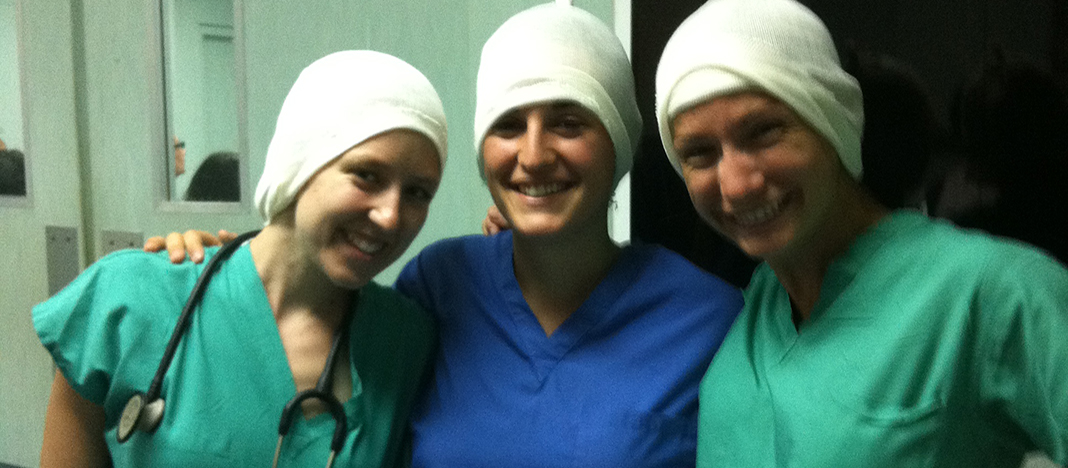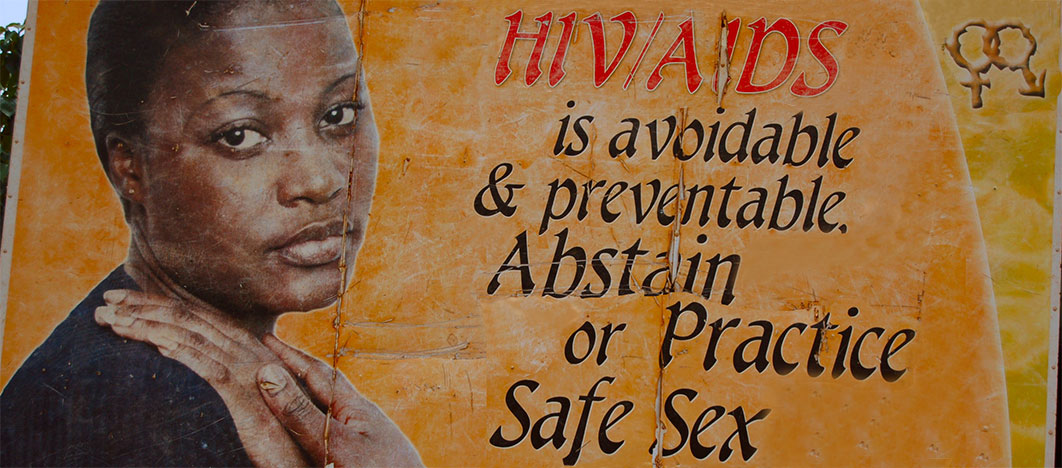MEDICOS Nicaragua
MEDICOS Nicaragua is a student-run program developed to promote educational and cultural exchange and provide international medical experiences. In keeping with the UC Davis School of Medicine tradition of serving the underserved and creating forums for exchange of diverse ideas, medical students have been working since 2003 to strengthen and expand the reach of the MEDICOS program. This global health opportunity exposes students to healthcare systems in the developing world and often serves as an inspiration for students to follow career paths that incorporate elements of care for underserved populations.
Since the program's inception, UC Davis School of Medicine and UNAN (Facultad de Medicina dela Universidad Nacional Autonoma de Nicaragua in Leon, Nicaragua) have developed a synergistic relationship that supports the advancement of academic and cultural enrichment between the two communities. Consequently, UCDSOM not only sends medical students to Leon for a medical experience abroad, but also hosts students from UNAN as an exchange. The vision of the exchange attempts to nurture global awareness, promote international collaboration in medicine, and aid in the improvement of healthcare to all people.
TRAVEL INFORMATION - NICARAGUA
Itinerary
Round trip:
United States→ Nicaragua→ United States
Health Concerns Summary
The following may pose a risk or require preventive measures based on this itinerary. See the report sections below for details.
- Vaccine-Preventable Diseases: hepatitis A, hepatitis B, influenza, rabies, typhoid fever
- Malaria
- Other Diseases: chagas' disease (American trypanosomiasis), chikungunya, dengue, leishmaniasis, leptospirosis, traveler's diarrhea, tuberculosis
Yellow Fever
Requirement Information (for entry)
Is yellow fever vaccine an official requirement for this itinerary?
NO. An official certificate showing vaccination within 10 years is not required for entry by any country on the entered itinerary sequence, but view full details and see "YF Requirement Table" if there are additional transited countries.
View full details »
- Visa application: Proof of YF vaccination may be required for certain visa applicants. Travelers should contact the appropriate embassy or consulate with questions and, if it is required for their visa, carry the YF certificate with their passport on the day of travel.
Yellow Fever Requirement Table for this Itinerary
The following values result in the "NO" requirement result shown above (based on a round trip with United States as the home country):
|
Yellow Fever Requirement Table |
||||
|
Country |
Transm. Risk |
Required if Coming From |
Applies to Ages |
See Note |
|
UNITED STATES |
No |
None |
None |
|
|
NICARAGUA |
No |
None |
None |
|
Recommendation Information (for health protection)
Is yellow fever vaccine a recommended protective measure for this itinerary?
NO. Vaccination is not necessary as a protective measure for any country on this itinerary.
Other Immunization Recommendations
- Hepatitis A
- Nicaragua
- Recommended for: all travelers.
- Nicaragua
- Typhoid fever
- Nicaragua
- Recommended for: all travelers.
- Nicaragua
- Hepatitis B
- Nicaragua
- Recommended for: all health care workers; the possibility of a new sexual partner during the stay; and injection drug users. Increased awareness is recommended regarding safe sex and body fluid/blood precautions.
- Nicaragua
- Rabies
- Nicaragua
- Risk exists in most of the country. Risk from bat exposure exists throughout the country. Recommended for: Prolonged stays: all young children and all travelers to rural areas where risk exists. Shorter stays: occupational exposure; adventure travelers, hikers, cave explorers, and backpackers, especially at locations more than 24 hours' travel from a reliable source of human rabies immune globulin and rabies vaccine for postexposure treatment; and all travelers involved in any activity that might bring them into direct contact with bats. Dog and bat bites or scratches should be taken seriously and postexposure prophylaxis sought even in those already immunized.
- Nicaragua
- Influenza
- Nicaragua
- Risk exists throughout the year in the tropics. Recommended for: all travelers due to demonstrated influenza risk in this group. Immunity may have declined in those vaccinated > 6 months earlier; consider an additional dose using the most recently available vaccine formulation. Consider oseltamivir as standby therapy, especially for those who are at high risk for complications from influenza.
- Nicaragua
- Polio
- Nicaragua
- Adult polio boosters are not recommended for travel to this country.
- Nicaragua
- Routine vaccinations (adults only)
- Tetanus, diphtheria, pertussis
- Nicaragua
- Due to increasingly frequent pertussis outbreaks worldwide, all travelers should receive Tdap vaccine every 10 years, assuming they previously received an adequate primary series. Those who received Td or TT for their most recent booster should receive an immediate dose of Tdap, regardless of interval since the last tetanus dose.
- Nicaragua
- Measles, mumps, rubella
- Nicaragua
- Indicated for those born in 1957 or later (1970 or later in Canada and U.K.; 1966 or later in Australia) without evidence of immunity or of 2 adequate doses of live vaccine at any time during their lives. Also indicated for those born before 1970 (in Canada) without evidence of immunity or vaccination with measles-containing vaccine at or after age 1 year.
- Nicaragua
- Varicella
- Nicaragua
- Indicated for all persons born outside the U.S. or born in the U.S. after 1979, except not indicated for persons with an adequate vaccination history (2 lifetime doses), reliable evidence of previous infection, or laboratory confirmation of immunity.
- Nicaragua
- Pneumococcal
- Nicaragua
- Recommended for adults aged ≥ 65 years and all adults with chronic disease or immunocompromising conditions.
- Nicaragua
- Tetanus, diphtheria, pertussis
Malaria
Malaria Information
- Nicaragua
- General malaria information: almost exclusively P. vivax (P. falciparum transmission is minimal and limited to northern and western Atlántico Norte). Transmission occurs throughout the year.
- Current Reports on Malaria in Nicaragua - April 12, 2015
- Location-specific recommendations:
-
- Chemoprophylaxis is recommended for all travelers: certain municipalities in the departments of Atlántico Norte, Atlántico Sur, and Jinotega (see map); the Cayos Miskitos and Corn Islands; the department of Chinandega; all cities and towns within these areas except the central urban area Chinandega.
- Chemoprophylaxis is recommended for certain travelers (see Issues to Consider inset): certain municipalities in the departments of Atlántico Norte, Atlántico Sur, and Jinotega (see map); all cities and towns within these areas.
- Insect precautions only are recommended (negligible transmission is reported): certain municipalities in the departments of Atlántico Sur, Matagalpa, Boaco, León, Managua [4], Masaya [5], Carazo [6], and Río San Juan; all cities and towns within these areas except Managua, Matagalpa, and León; the central urban area of Chinandega.
- No preventive measures are necessary (no evidence of transmission exists): the cities of Managua, Matagalpa, and León; all other areas not mentioned above.
Malaria Prophylaxis
Drug choice depends on personal factors discussed between the traveler and medical provider. No preventive measure is 100% effective. Immediate medical attention is necessary for fever or influenza-like illness within 3 months after travel in a malaria risk area. Include mention of travel history.
- Nicaragua
- Preventive measures: Evening and nighttime insect precautions are essential in areas with any level of transmission. Chloroquine and other antimalarials (atovaquone/proguanil, doxycycline, and mefloquine) are protective in this country.
|
Issues for Medical Providers to Consider |
||||
|
Factors favoring chemoprophylaxis |
Factors against chemoprophylaxis |
|||
|
♦ Adventure travel ♦ Risk-averse and vulnerable travelers ♦ Areas subject to infrequent epidemics ♦ Immigrants visiting friends and relatives ♦ Flexible itineraries ♦ Travel longer than 1 month ♦ Unreliable medical expertise and/or treatment drugs at destination |
♦ Air-conditioned hotels only ♦ Urban areas only ♦ Non-transmission season ♦ Minimal nighttime exposure ♦ Travel shorter than 3 days |
|||
|
See the Technical Explanation of Malaria Mapping document for more information. |
||||
NICARAGUA
General Information
Nicaragua is a developing nation in the lower half of the world's economies. Located north of Costa Rica and bordering both the Caribbean Sea and Pacific Ocean in Central America, its climate is tropical in the lowlands and cooler in the highlands.
Traveler's Diarrhea
- High risk exists throughout the country, including in deluxe accommodations in major cities. Food and beverage precautions are essential to reduce the likelihood of illness.
- Travelers should carry loperamide and/or a quinolone antibiotic for presumptive self-treatment of diarrhea if it occurs.
Other Concerns
- Tuberculosis: This disease is common in all developing countries and also presents risk in certain developed countries. This country, while not in the highest risk category, has an incidence of over 25 cases per 100,000 population. Travelers planning to stay more than 3 months should have pre-departure PPD skin test status documented. Those who expect to have close contact with the local populace should be tested if staying more than 1 month. Travelers should avoid persons who are coughing in crowded public places whenever possible. Domestic help should be screened for TB.
- Dengue: Significant risk exists in urban and rural areas throughout the country. Transmission occurs throughout the year with highest activity from May through December. Daytime insect precautions are recommended.
- Chikungunya: Risk exists in the western half of the country. Daytime insect precautions are recommended.
- Leishmaniasis: Cutaneous and mucocutaneous leishmaniasis occur in forested areas in Atlántico Norte, Atlántico Sur, Boaco, Chontales, Estelí, Jinotega, Madriz, Matagalpa, Nueva Segovia, and Río San Juan departments. Insect precautions (primarily evening and nighttime) are recommended.
- Chagas' Disease (American Trypanosomiasis): Risk to travelers is unknown but is presumed to be low in rural areas throughout the country. Travelers should avoid overnight stays in houses constructed of mud, adobe brick, or palm thatch.
- Leptospirosis: Risk exists for those engaged in hiking, biking, swimming, and other activities that involve extensive fresh water exposure. Consider doxycycline prophylaxis for those likely to encounter intense exposure.
- Marine Hazards: Jellyfish (often causing sea bather's eruption), coral, and sea urchins present risk. Dangerous (potentially deadly) jellyfish are present throughout the year, but particularly during the rainy season. Children are especially at risk, and adults wading, launching boats, or fishing.
- Security
- Important Issues: Violent crime, including armed robbery, kidnapping, and sexual assault occurs in some areas. There may be active land mines in isolated areas of the country. Travelers should exercise extraordinary vigilance and strict adherence to personal security strategies at all times.
- Aviation Assessment: The FAA (U.S.) has determined that the civil aviation authority of this country does not oversee its air carriers in accordance with minimum international safety standards.
Medical Care
- Medical care is substandard throughout the country, even in the best private medical facilities. Adequate evacuation coverage for all travelers is a high priority. In the event of a serious medical condition, medical evacuation to the United States is likely to be necessary. Hospital accommodations are inadequate throughout the country and advanced technology is lacking. Shortages of some routine medications and supplies may be encountered.
- For emergency services, dial 118.
- Emergency ambulance services are not available. In an emergency, individuals are taken to the nearest available hospital. This is usually a public hospital unless the individual or someone acting on their behalf indicates that he or she can pay for a private hospital.
- Physicians and hospital personnel often do not speak English, and medical reports are written in Spanish.
- Cash payment may be required prior to treatment; some private hospitals accept major credit cards.





